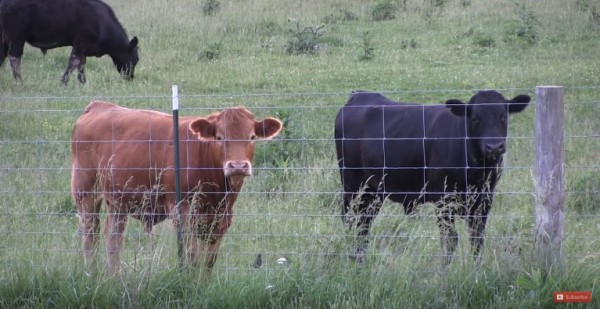By Prei Dy, | January 31, 2017

Scientists from China developed a genetically modified cattle using CRISPR/Cas9 technology for the first time.
Chinese scientists have produced a cloned cattle with increased resistance to bovine tuberculosis using the CRISPR/Cas9 technology for the first time, according to a new research published in the journal Genome Biology.
Researchers from the College of Veterinary Medicine, Northwest A&F University in Shaanxi, China, altered the genetic code of the cattle involved in fighting the infection using the gene-editing technology.
Like Us on Facebook
Scientists inserted NRAM1 gene, which made calves more resistant to TB, into a fibroblast type of cell found in dairy cows. After the gene has established in the genome of the cell, they then transferred the nucleus with the updated genetic material to the cow's egg cell. After that, they produced an embryo using sperm from a dairy cow before the embryo is implanted into the female cow's uterus, according to the International Business Times.
"The resulting transgenic cattle exhibited increased resistance to M. bovis infection," the scientists said. "Our study provides an avenue to develop the CRISPR/Cas9 system for agricultural applications."
Of the 12 calves born, 11 of which survived for more than three months. Moreover, researchers claimed that the genetically modified calves did not show any adverse side effects, suggesting that the CRISPR-Cas9n system is likely better for incorporating genes into mammals compared with other CRISPR technology versions.
"Our work has led to the discovery of a useful position in the bovine genome that can be targeted with this gene-editing technology to successfully insert new genes that can benefit agricultural livestock," Yong Zhang, one of the study authors, said.
However, some researchers remained skeptical about the study, doubting if the transgenic cattle had really developed resistance to TB.
"I was not convinced that the authors had demonstrated that the edited calves were resistant - there was no pathology reported for the edited or control animals," Prof. Alan Archibald, head of genetics and genomics at the Roslin Institute at the University of Edinburgh, said.
BBC also noted that although TB resistance tests were conducted on blood samples from the transgenic cattle, it is not clear what will happen if the cloned animals were exposed to tuberculosis under normal circumstance.
To give an idea what CRISPR technology is, watch the video below:
-
Use of Coronavirus Pandemic Drones Raises Privacy Concerns: Drones Spread Fear, Local Officials Say

-
Coronavirus Hampers The Delivery Of Lockheed Martin F-35 Stealth Fighters For 2020

-
Instagram Speeds Up Plans to Add Account Memorialization Feature Due to COVID-19 Deaths

-
NASA: Perseverance Plans to Bring 'Mars Rock' to Earth in 2031

-
600 Dead And 3,000 In The Hospital as Iranians Believed Drinking High-Concentrations of Alcohol Can Cure The Coronavirus

-
600 Dead And 3,000 In The Hospital as Iranians Believed Drinking High-Concentrations of Alcohol Can Cure The Coronavirus

-
COVID-19: Doctors, Nurses Use Virtual Reality to Learn New Skills in Treating Coronavirus Patients










